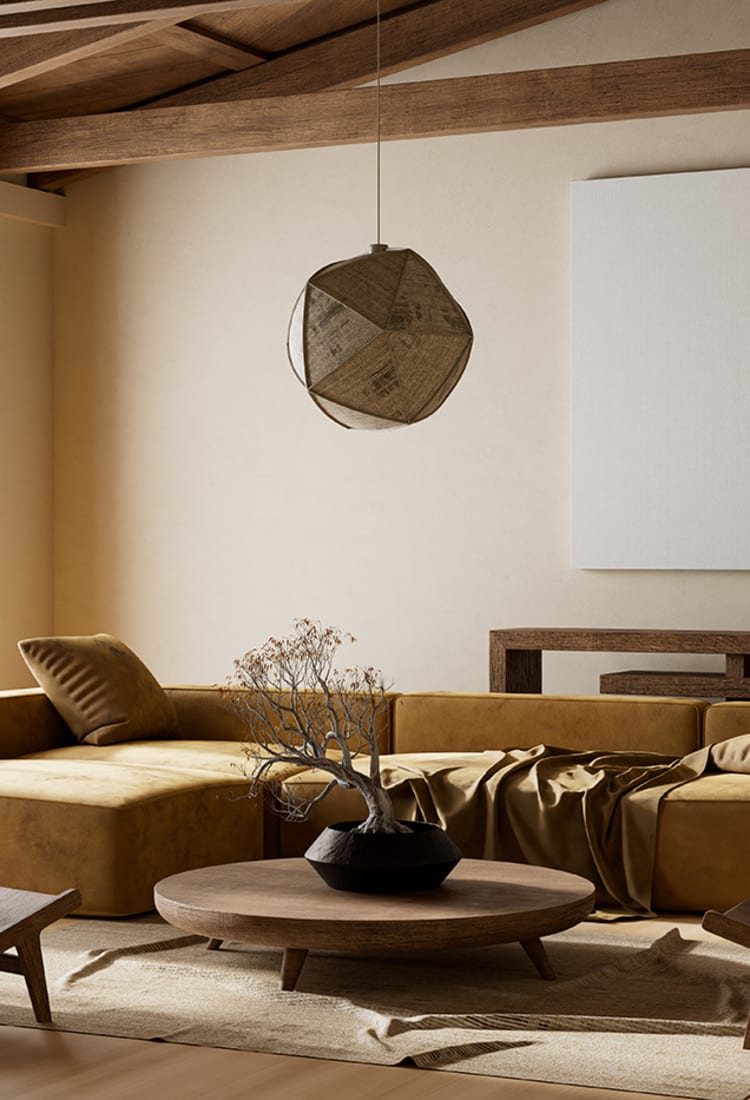
2025.8 Japandi Style 2025: Minimalist Luxury with a Soulful Twist Japandi—a serene and inviting aesthetic where wabi-sabi meets hygge, blending Japanese minimalism with Scandinavian warmth.
Throughout history, the convergence of Eastern and Western sensibilities has sparked changes in art, design, fashion, and more. Today, another fusion is capturing the global spotlight: Japandi—a serene and inviting aesthetic where wabi-sabi meets hygge, blending Japanese minimalism with Scandinavian warmth.
The Philosophy Behind Japandi Style
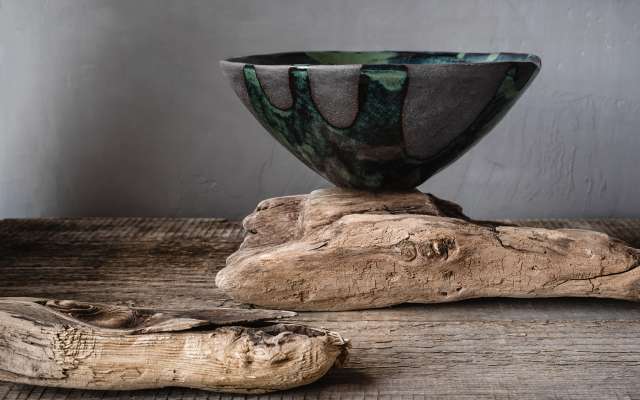
It’s no surprise that Japanese and Scandinavian aesthetics blend so well. Both embrace simplicity, nature, and a quiet sense of comfort, while still valuing functionality, quality, and craftsmanship. The Japanese philosophy of wabi-sabi—finding beauty in imperfection—echoes the gentle warmth of Scandinavian hygge, a feeling of cozy contentment and well-being.
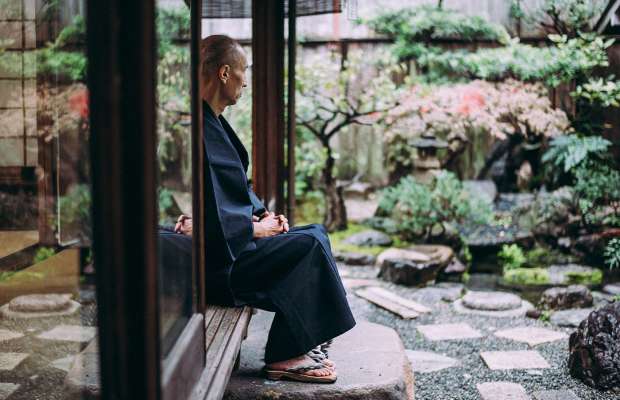
However, this connection goes deeper than design. At the core of both traditions is a profound respect for nature and a mindful way of living. It’s a bond that’s been steadily growing for over 150 years, ever since Japan opened to Western civilization during the Meiji era and inspired Scandinavian designers.
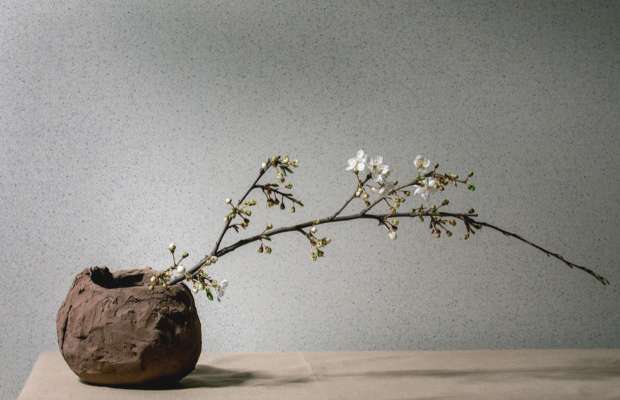
Today, that shared philosophy takes shape in soft natural textures, grounding color schemes, touches of greenery, and thoughtfully uncluttered spaces.
Finding Japandi on Your Travels Through Japan
There are plenty of regions in Japan where you can find your very own piece of Japandi bliss.
Timeless Wooden Essentials from Toyama Prefecture

The Inami area in Nanto City, Toyama Prefecture is renowned for its master wood-carvers, who traditionally undergo a rigorous 10-year apprenticeship to perfect their craft. These artisans specialize in intricate temple carvings and refined decor, which reveal precision artistry that has been honed over generations. Along Yokamachi Street, the heart of the town, their workshops welcome visitors with meticulously crafted pieces that radiate quality, tradition, and care. For your Japandi space, consider functional wooden pieces, such as beautiful waste bins or ergonomic tableware.
For a one-of-a-kind wood-carving experience, consider staying at Bed and Craft, where guests can take part in a three-hour workshop led by a traditional artisan. Often, the most comforting pieces are those crafted by your own hands with care and personal expression.
Cozy Minimalist Furniture from Gifu Prefecture

Hida-Takayama furniture is celebrated across Japan for its exquisite craftsmanship and deeply rooted heritage. Since 1920, Hida-no-Takumi (master woodworkers in Hida Town) have sustainably sourced local beechwood from the Japanese Alps, where Hida is located, to craft furniture known for its exceptional quality and elegant design. Individual pieces are slotted together without the use of nails or other reinforcements in a remarkable display of age-old joinery techniques and generational wisdom. Among the artisans’ notable pieces are classic bentwood chairs in the Thonet style—still considered some of the most technically challenging furniture to produce. With their made-in-Japan authenticity and harmony with nature, Hida-Takayama pieces perfectly complement any Japandi interior.
While you’re in the area, dive deep into the region’s history of craftsmanship and woodworking with a visit to the Hida Crafts Museum, a widely revered institution with fascinating interactive displays about this cherished tradition. Nearby, the Hida Furukawa Sakura Gift Shop offers guests the opportunity to try woodworking themselves. Recently made famous by the popular animated film “Your Name,” this picturesque region has a wealth of history and nostalgic architecture.
Earthy Ceramics from Okayama Prefecture

Bizen ware, a time-honored ceramic that exudes a simple cultural richness, emerged as one of Japan’s six great pottery traditions, popularized as early as the 14th century. The pottery features unglazed, earthy textures and thick, organic surfaces in smoky browns and muddy ochres with flashes of molten red, which give it a sturdy natural beauty and a raw yet refined feel. In tranquil Imbe Village, visitors can participate in a Bizen pottery experience, using cool, mineral-rich clay to craft their own pottery piece. With its deeply rustic character and understated functionality, Bizen ware embodies the essence of Japandi, making it a natural fit in any serene, minimalist space.
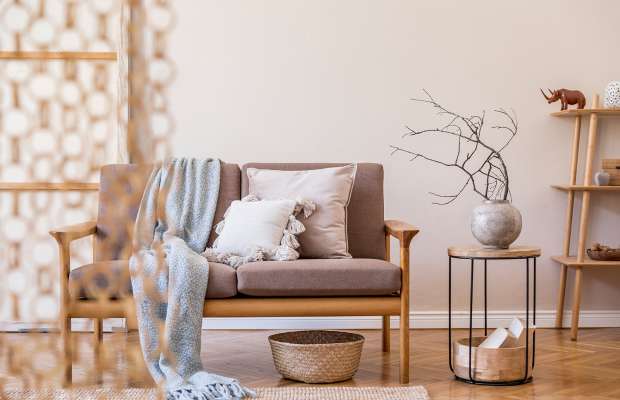
The Japandi Touch in Contemporary Hotels

The Japandi aesthetic is not limited to individual objects—it’s also woven into the very fabric of many hotels in Japan. An excellent example is the K5 hotel in Nihonbashi, a serene, minimalist retreat tucked into the vibrant center of Tokyo. The understated boutique hotel features interior design by Stockholm-based architecture partnership Claesson Koivisto Rune, who perfectly balance their own background with their clear admiration for Japanese craftsmanship, wittily incorporating Japanese indigo-dyed textiles and Japanese-style sliding doors into their work.

In Japan, it’s easy to spot Japandi-style accommodations, where pared-down yet serene spaces, inherently appreciated by the Japanese, are softened and enriched by Scandinavian warmth. Trunk House in Tokyo, Zentis in Osaka, Kimamaya by Odin in Hokkaido and House of Finn Juhl Hotel Hakuba in Nagano are just some of the examples of how this design philosophy has been brought to life—merging minimalist structure with cozy textures, natural materials, and a deep sense of intentionality that invites rest and reflection.
Embracing Japandi as a Lifestyle
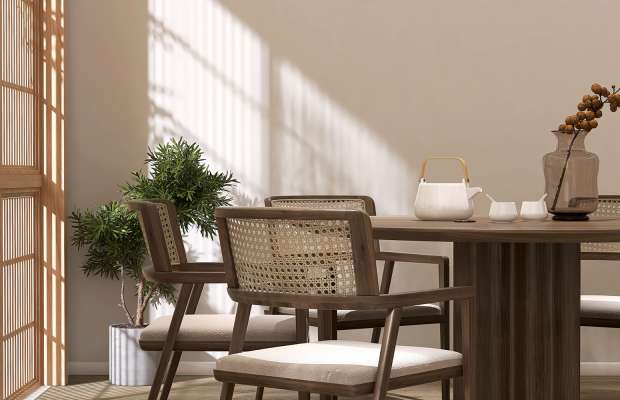
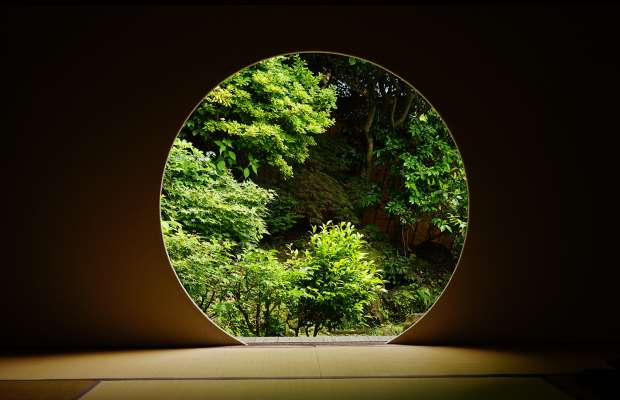
The more time you spend in Japan’s halcyon environments—a serene temple, a soothing hot spring, or a restful garden—the more attuned you will become to this tranquil aesthetic. Take advantage of your time in Japan to release daily stresses and become more mindful—in that way, you may enhance your well-being and also form a lasting, heartfelt connection to the essence of Japandi.
Additional Information
Inami Area Stays (Bed and Craft) |
Hida Crafts Museum |
Hida Furukawa Sakura Gift Shop |
|
https://hida.travel/destination/hida-furukawa-sakura-gift-shop/29 |
Bizen Pottery Experience |




























































